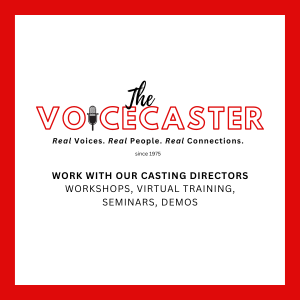|
VOICE ACTING Do We Shoot The Messenger, Or Is The Voice Over Role 'Just Politics'?  By Paul Strikwerda By Paul StrikwerdaVoice Actor & Author A painful, and often embarrassing war of words is finally over. America has voted. The people have spoken. We have a president-elect, and his name is Donald J. Trump. Some of us are elated. Some of us are scared. Some of us are asking ourselves: "How the heck did this happen?Ē Now, before you think this is yet another analysis of the election, let me stop you. This is primarily a thought about peopleís voices and their meaning - and thatís why you and I need to talk. VO's ELECTION ROLE How so? Because some of us were foot soldiers in this war of words. Soldiers of fortune. Iím referring to the voice actors who used their talent to spread the message of a particular party. Masterful manipulators, hand-picked and hired to move hearts and minds. Thatís not some dark, political point of view. Itís the ultimate purpose of our profession. Clients hire voice actors when they have something to sell, someone to entertain, something to teach, or something to preach. If we do our jobs well, we lift dead words off the page, and bring them to life in the most impactful way possible. Sometimes that way is a seductive whisper. Sometimes it is a battle cry about making a nation great again, or stronger together. PEOPLE 'BUY IN' As long as that cry is believable, people are buying it in droves. Itís all about influence. A masterful audiobook narrator can create wonderful worlds and characters that become an intimate part of the listenerís experience. Well-delivered catch phrases from commercials become ingrained in our culture. As the French say: "Itís the tone that makes the music,Ē and in my mind, itís the voice over who sets the tone, whether itís someone like Sir David Attenborough, Gilbert Godfrey or Morgan Freeman. Who can forget the way Ed McMahon delivered his "Hereís Johnny,Ē for almost 30 years? Who doesnít remember Don LaFontaineís booming "In a worldÖĒ or Don Pardo announcing Saturday Night Live? As youíre reading these words, you probably heard their voices inside your head, and hearing these voices put you in a certain state of mind, if only for a moment. Donít worry. Thatís perfectly normal. Voice actors infuse scripts with meaning and emotion. A talented voice actor can "playĒ the words, the way a musician turns notes into music, and music into art. WORDS ARE POWERFUL WEAPONS Now, at this point I can hear some of you say: "Slow down a little. Whatís the big deal? Words are just words! You canít get wet from the word water. Sticks and stones may break my bones, but names will never hurt me.Ē Well, youíre wrong. Words are powerful weapons. Depending on who delivers them, and how they are delivered, words can act as a placebo, or as a poison. The word Kristallnacht isnít "justĒ a word. Kristallnacht opens up a burning world of meaning; a world of anti-Semitism and intolerance that led to the killing of six million innocent people. Words are loaded. They can be used to divide, to incite, to help, and to heal. Words drive teenagers to suicide, and words inspire religious fanatics to murder and maim. Words are never "justĒ words. WHAT'S OUR RESPONSIBILITY? Now, subscribing to the idea that words have power has implications for all of us, and especially for professional communicators. Whether youíre a copywriter, a speech writer, a politician, or a voice actor, as a paid manipulator of language, you have the responsibility to ask yourself:
... BUT I STRUGGLE To be perfectly honest with you: I struggle with that attitude. Especially when itís about causes I strongly believe in, I find it hard to separate personal from professional ethics. For instance, as a lifelong vegetarian, I would never butcher my beliefs to promote the consumption of meat, no matter how much theyíd pay me. At the same time, Iím not going to make the mistake of confusing an actor with his or her character. If someone portrays a member of the KKK in a movie, I know it doesnít mean he supports the KKK. Perhaps that actor wanted to play this role to warn the world about the dangers of the Klan. FACT OR FICTION? So, to help myself deal with some professional, moral dilemmas, I find it useful to make a distinction between fiction, and fantasy. As a voice actor I give myself permission to play a despicable person if itís non-fiction (and with certain limitations). But I would never record a promo video for the KKK. And what about political ads? Would I be willing to help a political party influence the voters? It depends. Although many political ads sound too good to be true, I put them in the category of non-fiction. Theyíre a tool in a battle to influence the masses. Theyíre instruments of propaganda. Based on my personal morals, and knowing what I know about the power of words, I would never lend my voice to a message I donít believe in, regardless of the paycheck. My voice is for hire, but my integrity is not for sale. LET'S DISCUSS IT I understand that you may draw the line differently, because your values and beliefs are different from mine. That doesnít mean we shouldnít discuss ethics in our profession. Our voice is a powerful instrument of influence, that can be used for many purposes, good, or bad. One last thing. Letís not confuse doing a great job with doing what is right. It is very much possible to do great work for a terrible cause. Leni Riefenstahlís Triumph des Willens is a cinematic masterpiece of propaganda about the 1934 Nazi Party Congress in Nuremberg. Her documentary Olympia about the 1936 Olympics in Berlin, was groundbreaking. Sometimes itís not the work itself thatís being criticized. Itís the purpose it serves, that matters. With that being said, itís time to adjust to a new reality. Our election is over. To many observers, this wasnít an election about issues. This was an election about emotions; about who was best at selling a message to the masses. A painful, and often embarrassing war of words has finally come to an end. Or is it just beginning? ---------------- ABOUT PAUL Paul Strikwerda is a 25-year veteran of the voice over industry whose Nethervoice service features German and Dutch voice overs, translation and evaluation services. Born in Holland, he has worked for Dutch national and international radio, the BBC and American Public Radio. Although 90% of his work is in English, Strikwerda also records in Dutch, German and French. Clients include Novartis, Johnson & Johnson, and the Discovery Channel. And he is author of the new book, Making MONEY In Your PJs: Freelancing for voice-overs and other solopreneurs, and writes an informative and entertaining blog. Email: paul@nethervoice.com Web: www.nethervoice.comBlog: www.nethervoice.com/nethervoice Making MONEY In Your PJs: http://makingmoneyinyourpjs.com |
|
|
Get your bi-weekly dose here ... all things VO!
With Sean Daeley and Paul Stefano - check it out!
Inspiring interviews help your VO career
On Michael Langsner's Voice-Over Roadmap Podcast
As of the NEW website launch, 03/22/2012










(I note you are from Holland. I've lived in Europe, am fluent in French, and have a cousin who lives on the Prinsengracht in Amsterdam. Great town, by the way.)